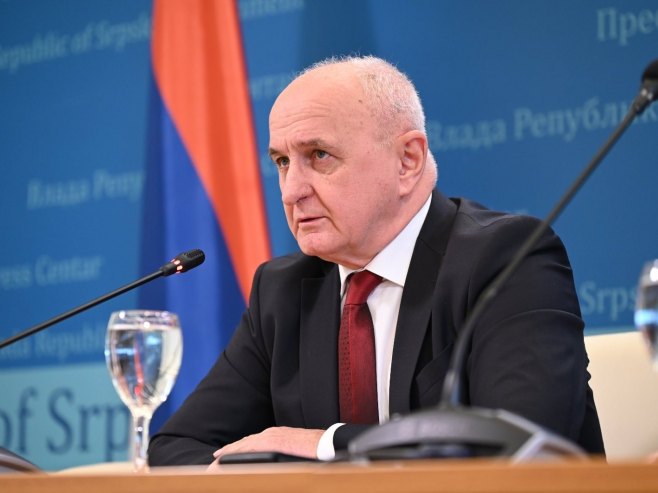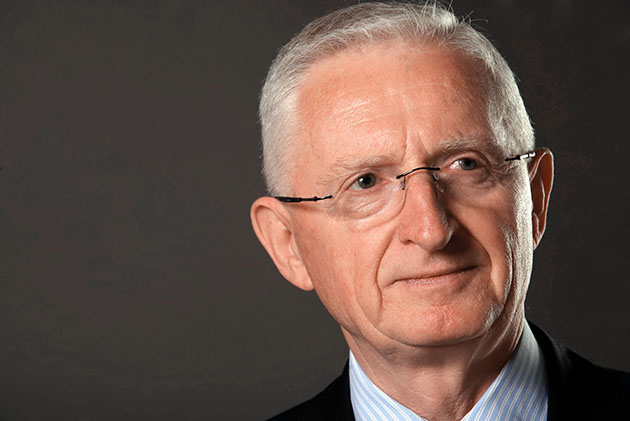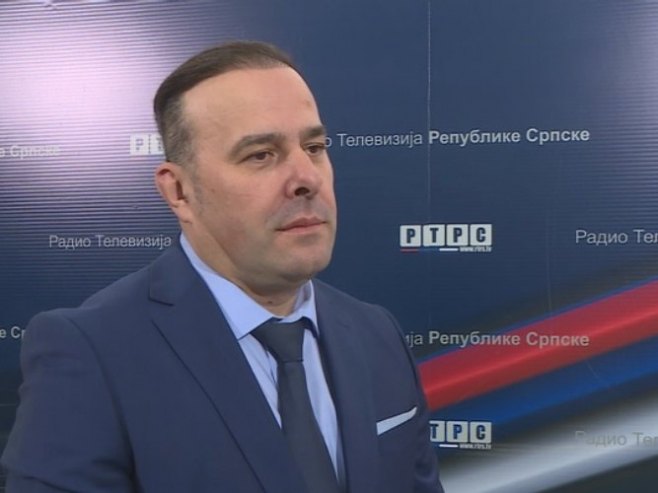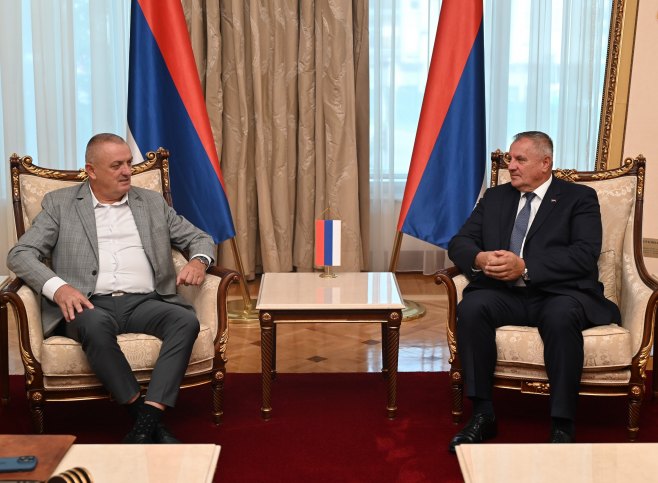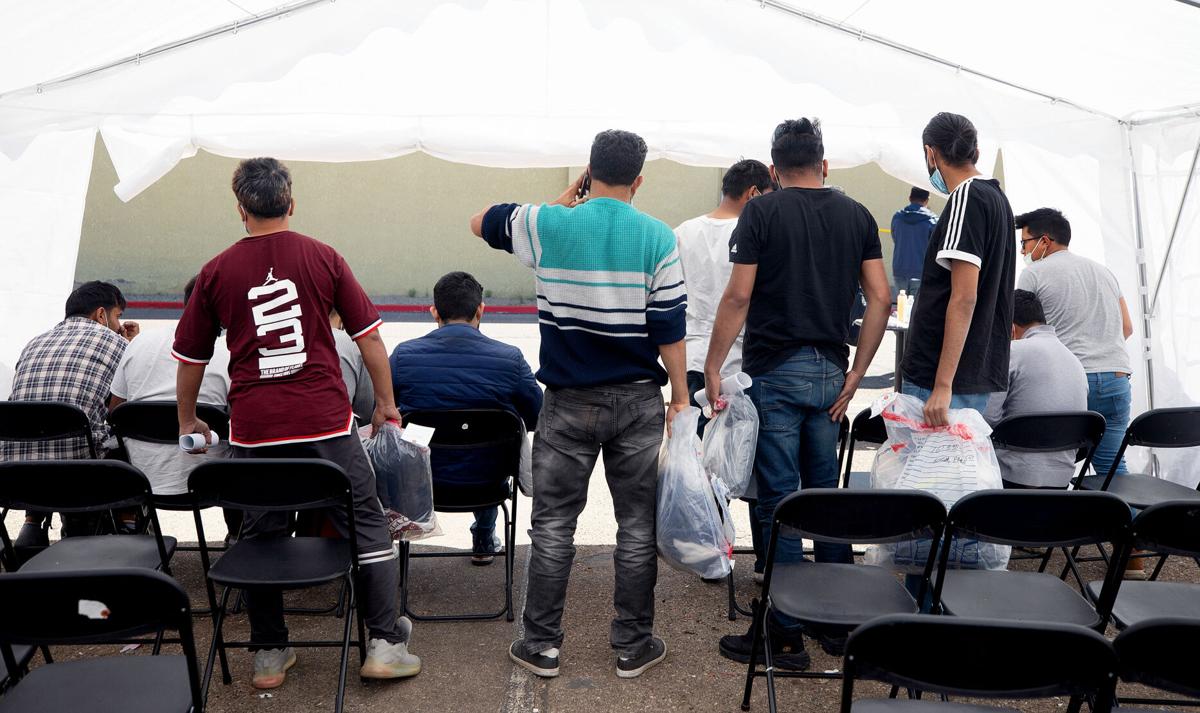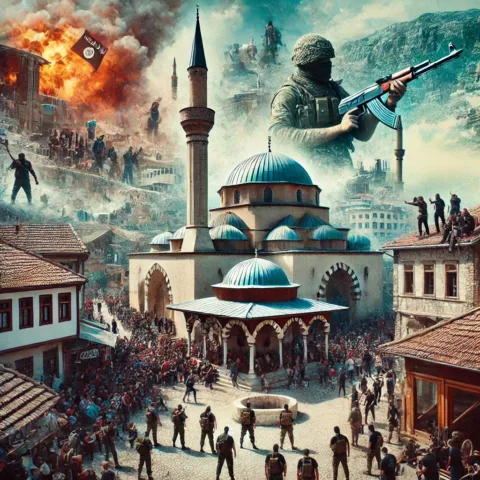Some factors in our neighborhood still behave today as if Albright, Clinton’s special envoys, and so on were still in power. That has changed. The global assessment is that the world has stepped into a new era, one based on building a world order on the foundations of sovereign equality of states and peoples, non-interference in internal affairs, and the principle of free choice of development paths. There are no ready-made recipes. The world today is not walking down familiar roads and tracks but is searching for new solutions.
So says for Glas Srpske lawyer and diplomat Živadin Jovanović, who was the Minister of Foreign Affairs of the FR Yugoslavia and is today the president of the Belgrade Forum for a World of Equals. Jovanović warns that pressures on Republika Srpska are increasing, which he claims are the result of the West’s aspirations to fully dominate the Balkans. On that list, he particularly highlights Germany and the German factor, which believes it has a “prior right to the Balkans.”
“Germany is even entering into certain differences with the United States, believing that the U.S. has business elsewhere and that this is the moment to finally realize its expansionist goals in the Balkans—by nullifying Srpska, supporting the illegal creation called the so-called Republic of Kosovo, and weakening the Serb people as a political factor in the Balkans,” Jovanović stated.
GLAS: Why do you see it that way?
JOVANOVIĆ: These are Germany’s geopolitical goals that are centuries old. It is known that Germany, before the First World War, during and after it, sought to subjugate the Balkans to its interests and thus gain access to the Mediterranean. There it faced the Serb factor as an obstacle, and therefore directed its aims against the Serbs, fragmenting the Serb people.
Germany believes it was unjustly punished in Versailles in 1918, that Yugoslavia was unjustly created as a country where the Serbs played an important role, and since then it has been trying to carry out a revision that could not be accomplished without breaking up the Serb people as the key political factor in the Balkans. That is the fundamental goal.
Just look at who the high representatives in BiH have been since Dayton, who is there today and how they arrived. These are manifestations of Germany’s expansionist imperial policy. The goal is to push the Serbs as far away from the Adriatic and the Mediterranean as possible. That goal is sometimes formulated as reducing Serbia to the Belgrade Pashaluk. There is too much evidence for this.
Germany played a key role in breaking up Yugoslavia because it saw this as breaking up the Serb people, and also to take revenge for the defeats to which Serbs contributed in the First and Second World Wars, and at the same time to reward the Muslims and Croats who had sided with expansionist Germany. Germany is playing a key role in revising Dayton, in the process of abolishing Srpska and reducing that state-building entity to an empty shell—a form without any substance.
GLAS: BiH is in one of its greatest crises, opened by the judicial process against the president of Republika Srpska for failing to respect the decisions of Christian Schmidt, who sits in the high representative’s chair without an adequate UN Security Council resolution. Neither China nor Russia recognize him, yet there is still considerable criticism of the political path chosen by Srpska’s leadership. How does all this look to you? Who is violating Dayton?
JOVANOVIĆ: All accusations against Republika Srpska and the Serb people, as well as against the leadership headed by President Dodik, are an expression of reversed theses. It is absolutely clear that Germany bears primary responsibility for the destabilization of BiH. If there was any doubt at the time of Dayton or immediately after, since 1997—when the session of the Peace Implementation Council in Bonn was held and the so-called Bonn principles adopted—it has been perfectly clear that the destruction of Srpska is the strategy of the German government.
The fact is that Republika Srpska is an absolutely unacceptable state-building form for that country. Germany carried out the first revision of the Dayton Agreement—and a fundamental one—through the Bonn principles. The so-called Bonn principles cannot be older than Dayton and the UN Security Council resolution that verifies that agreement as a permanently valid international legal document of the highest legal force.
There are no principles, no forms, no high representatives—legal or illegal—that can alter it. Increased pressures and the destabilization of BiH are the result of the new geopolitical situation in Europe. Germany, along with NATO and other European countries, assesses that the United States, under President Trump, has internal and external problems and that its priority is the Far East.
On the other hand, they are trying to exploit Russia’s preoccupation with Ukraine, seeing a vacuum that Germany should fill. It strives to completely subordinate the EU to its geopolitical goals and often invokes EU positions, which are in fact Germany’s policies and interests cloaked in the mantle of the Union. It also uses NATO, but to a measured extent, counting on support from the United Kingdom and that the U.S. will be less focused on NATO and Europe.
GLAS: We are approaching the 30th anniversary of the signing of Dayton. Before the 25th anniversary, you said that this agreement is an international treaty, untouchable, and that demands for revision carry the risk of collapse and return to the old situation—that it is unwise to tempt fate and release the ghosts from the bottle. Has this, nevertheless, been done? Are we seeing the consequences?
JOVANOVIĆ: The Dayton-Paris Peace Agreement on BiH is an international legal act of the highest legal force, and it is not a temporary document but, in the form signed in 1995, of permanent character. No side—especially not some external factor—was left the right to change what does not suit its foreign policy or geopolitical interests, or one of the signatory sides. That agreement has its mechanism of control and verification, it has guarantors, among them the UN Security Council.
Present-day Serbia, as the legal successor of Yugoslavia, is also there. Someone miscalculated, thinking that if they are losing positions to the East, where reinforced concrete has been set for further expansion, they can turn to the Southeast, that they can seek compensation elsewhere. Someone thinks that now is the time to more strongly and openly express geopolitical ambitions and goals, because the key global factors—Russia, America, China—are focused on global issues, not on something like Srpska or the Dayton Agreement. However, it is overlooked that this agreement is part of the international legal security system and that there can be no security in Europe or the world if such an important block as the Dayton-Paris Agreement is removed from that structure. There will be no peace, no security, no system in Europe without respect for the original Dayton Agreement.
Things cannot continue according to the pattern of the unipolar world order, which is already history. A multipolar order is not something that is expected but something that operates as an irrefutable and unremovable reality. My third thesis is that the Serb people in BiH, that is, in Srpska, have under the UN Charter the inalienable right to self-determination. The only question is when they will initiate the mechanism for this.
For all those who do not understand this—from Schmidt to Sarajevo—the insistence on revision and erasing Srpska will come back as a tragic boomerang. We must return to the track of dialogue and seek paths that will guarantee consistent respect and application of Dayton, and where it has already been violated, ensure correction to the previous state.
GLAS: You mention the right to self-determination. When representatives of Srpska say that, they are automatically accused of violating Dayton.
JOVANOVIĆ: I assess, I state, that the Serb people in BiH, that is, in Srpska, under international law and the UN Charter, have that inalienable right. To accuse anyone in Republika Srpska of choosing an unconstructive stance and policy is, I repeat, a reversal of theses.
The forces that undermine constructiveness are those striving to expand their interests in the Balkans at the expense of the Serb people. The Serb people do not seek other people’s territories, nor the realization of their legitimate interests at the expense of any other nation; rather, they simply want respect for agreements, which is a prerequisite for stability, peace, and progress for all. They want all those factors that beat the drums of destabilization or renewed conflict removed from the political stage.
The Serb people are committed to peace and development, even more than some others, because they have suffered by far the greatest casualties, sufferings, and losses from the expansionist policies of foreign factors and from war aggressions. It should not be forgotten that only from the German side, only in the past century, there were four aggressions—1914, 1941, 1995, 1999. Who then is the disruptive factor? Who goes onto other people’s territories? Who conquers? Who imposes their will, interests, and representatives on other peoples? That is not in the value system of the Serb people, but it is of some European states.
GLAS: After Milorad Dodik’s visit to Russia, it was announced that the issue of BiH will be raised openly in the UN Security Council. Why does the Council “keep” Christian Schmidt in the position in BiH, and who can pull BiH out of the obvious deadlock it has fallen into?
JOVANOVIĆ: While Republika Srpska maintains a constructive and principled attitude toward the Dayton Peace Agreement and remains open to dialogue and peaceful political solutions, the permanent solution depends on the key international factors. These are above all Russia, China, the United States, and after them India and other rising powers. They are currently preoccupied with global issues and with creating the framework for a new world and European security system, for building a new architecture of security and cooperation.
While they are engaged in these matters, remnants of old forces and perceptions remain—those still in the vein of Clinton, Obama, and Biden—and they cannot grasp or accept that this is a new reality and that all of them are already deeply in history. Therefore, I am certain that this issue too—the issue of the Balkans, and thus of Republika Srpska, as well as of Kosovo and Metohija—will come to the table of the global factors, the representatives of the countries of the new world order.
GLAS: You are also the president of the Belgrade Forum for a World of Equals. What is the world like today?
JOVANOVIĆ: Today we have two new development banks. One is tied to BRICS, and the other to the Shanghai Cooperation Organization, neither imposing political conditions or dictates. We have a profound change in the payment system, where the dollar, as a universal means of payment, is losing significance and value, while other forms are strengthening that do not require the dollar. We also see a rise in common efforts for peace and security, for the fight against international terrorism.
All this devalues earlier institutions and sends a call to supporters of the former unipolar world order to adapt to the new reality—that there are no more privileged ones, not in political, financial, or economic terms. Our organization has existed for 26 years, and now we see that the slogan “a world of equals” has been adopted by the highest representatives of the most powerful countries in the world. There is hope; it is worth fighting, adapting, closely following developments, and seeking adequate answers to these changes.
It is not easy for Serbia either
GLAS: At one point you mentioned Serbia as a guarantor of Dayton. That country is also in serious difficulties, but how important is it today for Srpska and Serbia, as the homelands of the Serb people, to be united and cohesive?
JOVANOVIĆ: We are witnessing the strengthening of unity between Srpska and Serbia. The essence lies in coordinating and uniting potentials in infrastructure, economy, education, culture, and on the international stage. All this must be intensified and nurtured in the best possible way. Serbia has its problems, but the question is—who in Europe does not? Nothing can diminish our potentials in the strategic directions of action, which are even more intensive connections between Srpska and Serbia and the coordination of activities on the international level. Natural and other resources must not be lightly given away to those who were aggressors and who still today wish instability for our countries. With much greater determination and attention, we must connect even more, relying on Russia, China, and the countries of the Global South, while maintaining good relations and neighborliness with the EU, as well as building even better relations with the U.S.
Source: Glas Srpske

